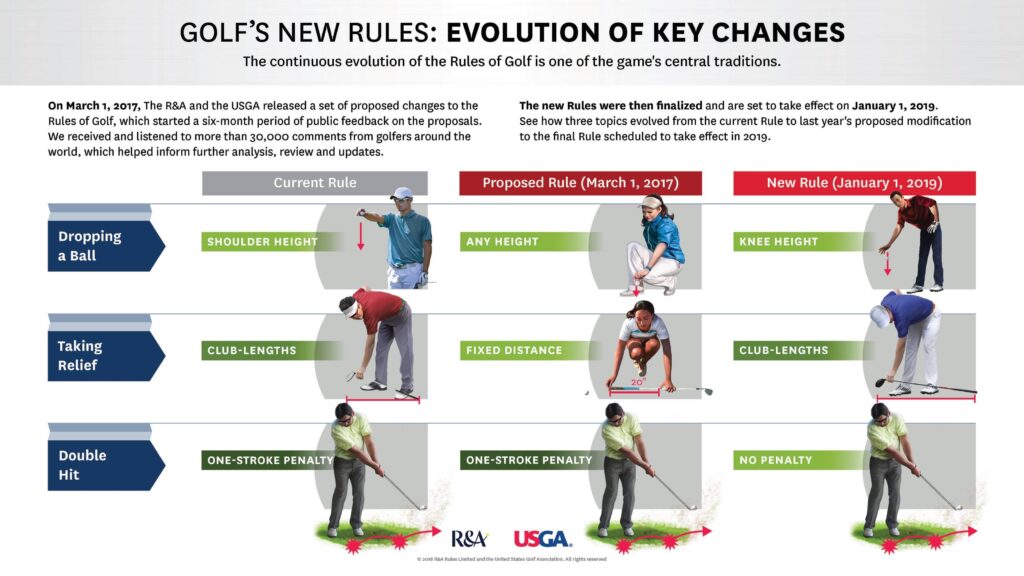Calls for Golf Rule Revisions Sparked‚ĀĘ by‚ÄĆ Schmid’s Controversial Actions on ‚ÄĆthe PGA Tour
in ‚Ā§a sport rich with‚ĀĘ history and established guidelines, the‚Äč recent actions of European Tour player Stefan Schmid have sparked ‚ÄĆa lively discussion among PGA Tour players and officials about the need for potential changes ‚Ā£to existing ‚Ā£golf regulations. Schmid‚Äôs‚ÄĆ contentious behavior during ‚Ā§a crucial tournament has led to demands for a reassessment of certain rules that dictate ‚Äčgameplay, igniting conversations that underscore the delicate balance between maintaining the sport’s integrity and adapting to contemporary expectations. As governing bodies in golf deliberate over the ramifications of‚Ā§ Schmid’s incident, this evolving situation not only mirrors ‚ĀĘthe changing dynamics within professional golf but ‚Äčalso raises essential questions regarding its future direction. With opinions split among players, officials, and fans alike, discussions surrounding possible rule ‚ĀĘmodifications are set to influence competitive golf for years ahead.
Reevaluation of Golf Regulations considering Schmid’s ‚ĀĘActions
The recent controversy involving Schmid during a PGA Tour event has reignited‚Ā£ calls for an examination of current ‚ĀĘgolfing ‚ĀĘregulations. Critics contend that some rules ‚Ā£may not adequately address modern gameplay complexities.‚Ā§ Key areas under scrutiny include:
- Vagueness in Existing Rules: Many golfers perceive certain regulations as unclear, ‚Ā£resulting ‚ÄĆin inconsistent interpretations during play.
- Player Safety Concerns: As competition intensifies within golf,‚Ā£ rules that could inadvertently jeopardize player safety are being closely‚ÄĆ evaluated.
- Pace of Play Issues: There is growing advocacy for ‚Ā£rules designed‚Äć to expedite gameplay without compromising fairness.
Amid these discussions, numerous professional golfers ‚ÄĆhave ‚Ā£expressed their views on the necessity for an official review by governing bodies. One player suggested‚ÄĆ that modifying ‚Äčcertain guidelines could enhance experiences for both competitors and spectators by incorporating more practical standards. ‚ĀĘMoreover, advancements in technology related to equipment and performance analysis have prompted some experts to advocate revisiting how these innovations intersect with customary golfing norms. A collaborative effort might potentially ‚Äčbe essential‚Ā£ in fostering an environment were innovative play can ‚Äćflourish under equitable regulations.
Expert Analysis on Rule‚Ā§ Changes and Their Implications for Golf
The ‚ĀĘongoing debate surrounding Schmid‚Äôs actions has brought renewed attention to potential amendments within professional golf‚Äôs rulebook. Experts assert that current regulations might not sufficiently reflect modern ‚Ā£playing conditions or accommodate shifts within the sport‚Äć itself. Critical issues include pace of play enhancements,‚Ā§ integration of‚Ā£ technology into competitions,‚ÄĆ and updated equipment standards‚ÄĒall factors reshaping how players approach their game.Proposed adjustments may encompass:
- A revision of time limits allocated per shot readiness aimed at improving pace.
- A reexamination of equipment specifications intended to ‚Ā£ensure fair competition across all levels.
- A clearer framework regarding technology usage during tournaments with stricter enforcement measures.
The implications ‚Äčstemming from these debates could substantially impact upcoming tournaments as they unfold over time. Insights from sports analysts indicate that any alterations might fundamentally change strategies employed by players while also affecting overall competitive dynamics.The following‚ÄĆ areas stand out as potentially influenced:
| impact Area | Potential Outcomes |
|---|---|
| Pace Enhancement | Smoother rounds leading to heightened spectator interest. |
| Tactical Adjustments | Evolving strategies based on new regulatory frameworks. |
| Cumulative Equipment Expenses | An increase in costs incurred by players due to revised ‚Äčstandards. |
Conclusion and Future Prospects
the recent developments involving ‚ÄĆMatthias Schmid have reignited ‚Äćnotable discourse within ‚ÄĆthe golfing community concerning ‚Äčplayer conduct rules and equipment usage on tour events like those held ‚Ā§by PGA professionals. As demands for reform intensify across various stakeholders‚ÄĒfrom athletes themselves through officials‚ÄĒcareful consideration will be necessary when contemplating any changes so as‚ÄĆ not to compromise sporting integrity. ‚Ā§The‚ĀĘ forthcoming weeks are ‚Ā£likely critical as dialogues progress around‚Äć this contentious issue; enthusiasts‚Ā£ from all corners will be keenly observing how such matters might‚Ā§ reshape competitive golf moving forward into‚Ā£ future seasons.








